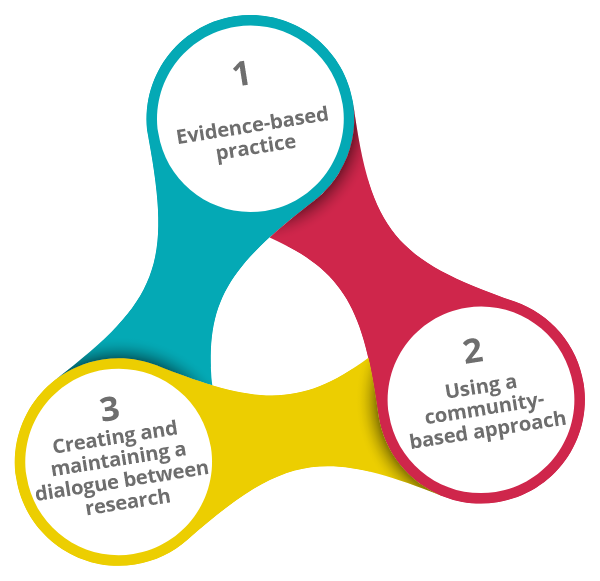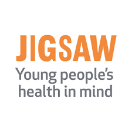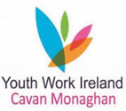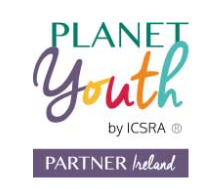ABOUT
Overview
Planet Youth was introduced in the West of Ireland in 2018 and following a successful ethical approval process with the RCPI – Royal College of Physicians is being introcuded to North Dublin, along with Cavan and Monaghan in a research collaboration with the RCSI.
There are currently three regional Drug & Alcohol Task Force areas in Ireland that are implementing Planet Youth. The Western Regional DATF ( Galway, Mayo and Roscommon), the North East Regional DATF in collaboration with the ETB(Cavan & Monaghan) and the North Dublin Regional DATF (North Dublin). These five-year pilot programmes have been initiated and developed in each area with a diverse range of partners in each of the regions. Each area has its own Steering Committee and substructures and these consist of funders and strategic and implementation partners, all of whom are committed to the development of Planet Youth to improve the health and wellbeing of young people in their areas.
Planet Youth is an international evidence-based primary prevention model, developed by the Icelandic Centre for Social Research and Analysis (ICSRA) at Reykjavik University. It was initially developed in order to reduce substance use rates amongst young people. The model uses a whole population approach and offers the opportunity to improve health and life outcomes for young people in many areas. It works by directly targeting the risk and protective factors that determine their substance use behaviours and enhancing the social environment they are growing up in. By reducing the known risk factors and strengthening the known protective factors the problems associated with adolescent substance use can be reduced or stopped before they arise.


The Model Pillars
In Iceland the model has produced great results through having a consistent focus on local community work, cross-disciplinary collaboration and investment.
The Planet Youth approach is based on five principles that provide guidance on how the community intervention process should be implemented.
5 Guiding Principles
The five guiding principles guide the types of information we gather and the interventions we design. They ensure that the community as a whole works together. Community involvement, empowerment and ownership of the project are key ingredients for successful implementation.
1
Apply a primary prevention approach that is designed to enhance the social environment.
2
Integrate researchers, policy-makers, practitioners, and community members into a unified team dedicated to solving complex, real-world problems.
3
Engage and empower community members to make practical decisions using local, high-quality, accessible data and diagnostics.
4
Emphasise community action and embrace schools as a natural hub of community efforts to support child and adolescent health, learning, and life success.
5
Match the scope of the solution to the scope of the problem, including emphasising long-term intervention and investment when marshalling resources.

10 Steps to implementation
The 10 steps to implementation describe the sequential steps that the local Planet Youth team engage in to advance the objectives of the project.
- Developing a local coalition of stakeholders
- Developing local funding
- Pre-data collection planning and community engagement
- Data collection, processing and data-driven diagnostics
- Enhancing community participation
- Disseminating findings
- Goal setting activities with schools and communities
- Aligning local policies and practice towards prevention activities
- Immersion of young people in preventative activities
- Repeating steps 1-9 within a set timeframeproject.
Survey Info
About the Survey
Planet Youth works by directly targeting the risk and protective factors in young people’s lives that determine their substance use behaviours and enhancing the social environment they are growing up in. By reducing the known risk factors and strengthening the known protective factors the problems associated with adolescent substance use can be reduced or stopped before they arise. The Planet Youth model offers the opportunity to improve the long-term health and life outcomes for young people and goes far beyond simply reducing their substance use rates.
The model is underpinned by the data derived from the administration of the Planet Youth questionnaire.
This comprehensive lifestyle questionnaire is administered to the 15-16 year olds in the target community and it examines a great many aspects of their lives. There are questions on their substance use, health, mental health, physical activity, family and school experience, internet use, bullying, and many other categories. There are over 70 questions in the current Planet Youth questionnaire.
The data returned from the survey is used to inform the development of suitable interventions in the community that will help address the known risk and protective for young people and thus improve outcomes


Research Team
The survey is a result of a collaboration between the North Dublin Regional Drug and Alcohol Task Force, the Cavan-Monaghan Education and Training Board, and the Royal College of Surgeons in Ireland. The survey component of the Planet Youth program is a research activity and is granted ethical approval by the Royal College of Physicians in Ireland Research Ethics Committee. The survey was developed in collaboration with the Icelandic Centre for Social Research and Analysis whom initially developed the original questionnaire.
The academic lead for the survey is Prof. Mary Cannon, Professor of Psychiatric Epidemiology and Youth Mental Health at the RCSI, University of Medicine & Healthcare Sciences. The other members of the survey team include Ms. Brid Walsh (North Dublin Regional Drug and Alcohol Task Force), Mr. Andy Ogle (North Eastern Regional Drug and Alcohol Task Force), Ms. Maureen McIntyre (Cavan-Monaghan Education and Training Board), & Dr Emmet Power (RCSI).
The Survey
The study team designed the survey in collaboration with the Icelandic Centre for Social Research and Analysis. The survey’s core outcome measures allow us to compare the wellbeing of adolescents in our communities compared to adolescents more generally throughout the Planet Youth study. The core outcome measures are similar to the measures used in other countries.
The types of questions we ask include:
- Wellbeing and fulfilment
- Self esteem
- Parental monitoring and supervision
- Peer and parent relationship quality
- School experiences
- Sports, hobbies and recreation
- Substance use
- Mental health
- Risk issues for young people around sexual consent
- Violence within peer relationships
- Experiences of discrimination
- Access to transport and other practical resources
- The impact of COVID-19 has affected young people’s lives
The survey will be repeated every two years and we will monitor changes at local level. The purpose of the survey is to monitor the impact of the interventions in Planet Youth.
The survey is online, takes about 45 minutes and consists of multiple choice questions.
The survey will be delivered with schools, and the Icelandic Centre for Social Research and Analysis (ICSRA) provides training for teachers on delivering the survey. ICSRA provide assistance with data analysis, reporting and collaborate with the local site teams to scale up interventions.
RCSI, University of Medicine and Healthcare Sciences is the academic partner for Planet Youth in Cavan, Monaghan & North Dublin.
Your local contacts







Previous
Next
